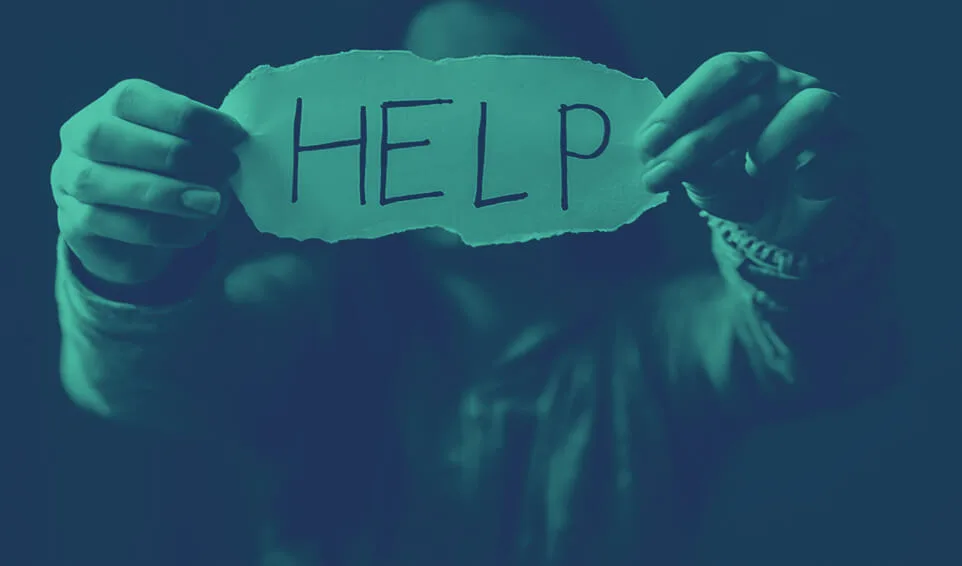
“[The pandemic] really does create a situation where personal safety is difficult to maintain.”
A new report is shining a light on how the COVID-19 pandemic is stretching Arizona domestic violence shelter resources thin.
The Arizona Coalition to End Sexual and Domestic Violence report found that all of the 24 programs that responded experienced shortfalls in fundraising and are in need of personal protective equipment (PPE) and funding for food and other necessities.
Jenna Panas, the coalition’s CEO, told The Copper Courier the need for more resources comes at a time when shelters are trying to provide more services like support groups and counseling to survivors.
Due to the pandemic, “you’re not able to see those individuals who might be checking on you to ensure that you’re safe,” she said. “And then it’s putting you in home with potentially your abuser or a negative situation.”
RELATED: The State Failed These Arizonans. Their Neighbors Are Stepping Up To Help.
This need to reach people in a safe way increases shelters’ reliance on technology, like tablets, Wi-Fi hotspots, and software programs, which require more funding to purchase.
And due to a shortage in space, shelters are trying to work with hotels and other groups to find safe places for those in need.
About 80% of the programs in the report said they have inadequate space to practice social distancing, and 62% have experienced disruptions in staffing due to COVID-related illness or resignations.
Panas said one shelter in southern Arizona was even forced to close after an employee’s exposure required many other staff members to stay home and quarantine.
“Most of our shelters are trying to work with hotels or alternate placing to be able to keep folks safe,” Panas said. “Without money, they’re not going to be able to do that.”
Pandemic-Related Stress
Finding these places for people to go is especially important during this time when tension may be ramping up at home.
“You have financial stressors, you have the stressors of just worrying about disease, and then you have the additional stress of being in home with someone 24 hours a day and unable to escape or have a valve for that stress,” Panas explained. “And this really does create a situation where personal safety is difficult to maintain.”
And delays in receiving help can mean more abuse, in some cases resulting in an abuser killing their partner.
“The inability to be able to reach out and reach survivors and to provide services just means that folks are going to be trapped in those situations for longer, or trapped in situations in which things escalate which of course can often result in increased harm,” Panas said.
RELATED: Coronavirus Is Making Life Especially Dangerous for Domestic Violence Survivors
To help shelters, Panas recommended checking her group’s list of each shelter’s most urgent needs. Some ask for material donations, while others ask for monetary donations and gift cards.
People can also donate to the Arizona Coalition to End Sexual and Domestic Violence’s emergency relief fund, which goes directly to survivors to use for housing, food, transportation, and other needs.
According to the coalition, more than 804,000 women in Arizona and nearly 454,000 men will experience domestic violence in their lifetime.
Crisis resources can be reached at the 24-hour National Domestic Violence Hotline (800-799-7233) and the 24-hour National Sexual Assault Hotline (800-656-4673).
Support Our Cause
Thank you for taking the time to read our work. Before you go, we hope you'll consider supporting our values-driven journalism, which has always strived to make clear what's really at stake for Arizonans and our future.
Since day one, our goal here at The Copper Courier has always been to empower people across the state with fact-based news and information. We believe that when people are armed with knowledge about what's happening in their local, state, and federal governments—including who is working on their behalf and who is actively trying to block efforts aimed at improving the daily lives of Arizona families—they will be inspired to become civically engaged.


He said what? 10 things to know about RFK Jr.
The Kennedy family has long been considered “Democratic royalty.” But Robert F. Kennedy, Jr.—son of Robert F. Kennedy, who was assassinated while...

Here’s everything you need to know about this month’s Mercury retrograde
Does everything in your life feel a little more chaotic than usual? Or do you feel like misunderstandings are cropping up more frequently than they...

Arizona expects to be back at the center of election attacks. Its officials are going on offense
Republican Richer and Democrat Fontes are taking more aggressive steps than ever to rebuild trust with voters, knock down disinformation, and...

George Santos’ former treasurer running attack ads in Arizona with Dem-sounding PAC name
An unregistered, Republican-run political action committee from Texas with a deceptively Democratic name and ties to disgraced US Rep. George Santos...





